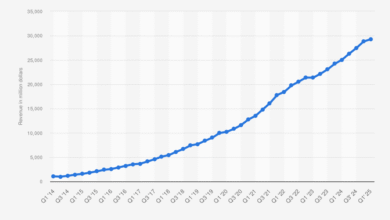Microsoft Email Controversy: Censorship or Policy Issues?
The Microsoft Email Controversy has sparked intense debate and scrutiny, as employees at the tech giant allege that Microsoft Outlook is blocking emails containing sensitive terms related to the Israeli-Palestinian conflict. This situation has raised significant workplace inclusivity concerns, particularly as terms like “Palestine” and “Gaza” seem to trigger censorship, while others such as “Israel” do not face the same restrictions. Internal reports indicate that even discussions surrounding human resources complaints have been stifled by these email sending issues, prompting criticism from staff about potential bias in Microsoft’s communication policies. Protests against Microsoft have also escalated, with activists voicing their frustrations regarding the company’s role in the ongoing geopolitical strife. As the discourse evolves, it becomes crucial for Microsoft to address these accusations and reassess their commitment to open dialogue within their workplace.
In recent discussions surrounding the tech world, a notable incident involving Microsoft has emerged, highlighting allegations of email censorship linked to politically charged topics, particularly those concerning the Israeli-Palestinian dispute. Employees have brought forward claims that the company’s email system is selectively blocking messages that include certain contentious keywords, leading to heightened concerns over inclusivity and equity in workplace communication. These incidents have not only ignited fervent protests against Microsoft but have also resulted in significant discussions about the implications of their email sending constraints on company morale and employee expression. The uproar surrounding this situation reflects broader societal tensions and challenges as companies navigate the complexities of fostering an open and inclusive work environment while managing external pressures. As the narrative continues to unfold, many are watching closely to see how Microsoft responds to these allegations and the potential repercussions for their corporate ethos.
The Microsoft Email Controversy: Censorship or Company Policy?
The issue surrounding Microsoft Outlook’s treatment of emails containing terms associated with the Israeli-Palestinian conflict has raised serious questions about the company’s commitment to workplace inclusivity and freedom of speech. Employees have reported difficulty in sending emails that include terms like “Palestine” and “Gaza,” which some argue implies a bias in content moderation policies. In internal communications, many employees expressed concern over the apparent selective blocking of certain keywords while others, such as “Israel,” were permitted, prompting discussions about fairness and inclusivity in the workplace.
Spokesperson Frank Shaw’s declarations that emails are not being blocked unless sent to large distribution groups have led to skepticism among employees. Many are questioning how extensive this censorship is and whether it reflects a broader trend of suppressing dissenting voices. With calls for transparency and respect for diverse opinions, employees are left wondering if Microsoft is prioritizing its public image over genuine inclusivity in its corporate communications.
Impact on Workplace Inclusivity Concerns at Microsoft
Microsoft’s email censorship issue has unveiled significant workplace inclusivity concerns among its employees, particularly in regard to freedom of expression when discussing sensitive political topics. The inability to send emails containing terms linked to the Israeli-Palestinian conflict has led many to question Microsoft’s commitment to fostering an environment where all voices can be heard. This extends beyond just emails, raising issues about how open dialogue is facilitated—or restricted—within corporate settings.
The reaction from employees has been stark, as many feel their ability to engage in discussions relevant to workplace inclusivity and critical global issues is being stifled. The fear that discussing certain terms might lead to disciplinary action or that their emails could be blocked creates a chilling effect, discouraging employees from voicing concerns about ethics and social justice. This scenario highlights a critical tension between corporate policy and the personal values of employees, emphasizing a need for Microsoft to revisit and reassess its communication strategies.
Growing Internal Protests Against Microsoft’s Email Policies
The internal protests within Microsoft have surged as employees demand accountability regarding the company’s handling of emails related to the Israeli-Palestinian conflict. The escalation of demonstrations signals a growing unrest among staff who are dissatisfied with perceived censorship. The protests reflect not only frustration around email sending issues but also broader anxieties about how Microsoft’s technology is being utilized in real-world conflict scenarios.
Recent protests at significant events, such as the Microsoft Build developer conference, showcased employees’ frustrations manifesting into vocal and disruptive demonstrations. Activists within the company are drawing attention to the potential complicity of Microsoft in the ongoing humanitarian issues by highlighting the use of its technologies by the Israeli military. These demonstrations underscore a pivotal moment for Microsoft, emphasizing the urgent need to reconcile corporate policies with employee values.
The Role of Microsoft Outlook in Political Discourse
The situation with Microsoft Outlook highlights the intersection of technology, communication, and political discourse. As companies increasingly rely on communication platforms like Outlook for both internal and external discussions, the implications of content filtering become far-reaching. The challenges faced by Microsoft employees in sending politically sensitive emails raise critical questions about how technology companies should navigate complex social issues while maintaining open channels of communication.
Critics argue that filtering emails based on specific keywords can lead to a sanitized version of discourse that excludes valuable perspectives on pressing global issues. This not only hampers constructive dialogue among employees but also reflects poorly on the company’s role as a content facilitator. As Microsoft continues to grapple with these pressing issues, it must assess the balance between operational policies and the preservation of a space for diverse political dialogue.
Activism and Solidarity Among Microsoft Employees
The recent upheaval at Microsoft has not only sparked discussions around email policies but has also fostered a sense of activism among employees. Many staff members are expressing solidarity with others affected by the restrictions, encouraging collective action to challenge the company’s practices, particularly those surrounding sensitive topics like the Israeli-Palestinian conflict. Movements that have emerged within the firm, such as ‘No Azure for Apartheid,’ exemplify the commitment of employees to advocate for human rights.
These activist groups are not only raising awareness about Microsoft’s technology being used in global conflicts but are also pushing for accountability and ethical standards within corporate practices. The embrace of activism within a large corporation like Microsoft indicates a transformative shift in how employees view their roles—not just as workers, but as stakeholders in the company’s ethical direction concerning human rights and corporate responsibility.
Consequences of Censorship in Corporate Communication
The consequences of censorship in corporate communication can significantly affect employee morale and trust within an organization. In Microsoft’s case, the blocking of emails with politically charged terms raises concerns that employees may feel hesitant to engage in meaningful discussions about injustices or humanitarian crises. This lack of open dialogue can lead to a toxic workplace culture where employees feel oppressed rather than supported, stifling creativity and innovation that thrive on diverse viewpoints.
Moreover, censorship in communication can harm a company’s reputation externally, as it reflects on the values the organization upholds. If employees feel that their voices are marginalized, it risks alienating talent who prioritize inclusivity and social justice. Microsoft, being a leader in the tech industry, has a responsibility to establish policies that not only comply with legal frameworks but also honor the principles of freedom of expression and inclusivity.
Responses from Microsoft Executives and Leadership
The responses from Microsoft executives following the email controversy have been perceived with skepticism by employees. Chief communications officer Frank Shaw stated that email blocks only apply to large distribution groups, which employees found misleading. Internal communications suggest that many workers have encountered the issue even when sending standard work emails, indicating a disconnect between executive assurances and employee experiences.
Leadership’s approach in addressing the concerns surrounding email policy will be pivotal in determining the company’s path forward. The need for clarification around censorship and its implications for communication policy is critical not only for employee trust but also for maintaining the integrity of the company’s commitment to inclusivity. As Microsoft navigates this crisis, it faces a critical juncture in ensuring all employees feel valued and heard.
The Broader Implications of Microsoft’s Stance on Political Issues
Microsoft’s stance on political issues—particularly in relation to the Israeli-Palestinian conflict—holds broader implications for the tech industry and corporate responsibility. As tech firms continue to develop and supply tools that are integral to global communications, their policies can influence societal discussions around human rights, equity, and corporate ethics. By enforcing email filtering that appears biased, Microsoft risks aligning itself with narratives of censorship rather than those of ethical engagement.
This controversy beckons other tech companies to reflect on their practices and to consider how they can uphold values that promote inclusivity, justice, and transparency. As awareness of these issues grows among consumers and employees alike, companies like Microsoft face increasing pressure to ensure that their corporate policies reflect the values they publicly espouse, reinforcing a commitment to creating a positive impact in society.
Examining the Future of Corporate Communication Policies
The fallout from Microsoft’s email controversy invites an examination of the future of corporate communication policies, particularly in relation to sensitive global issues. Companies must balance the need for effective operational communication with the responsibility of fostering a culture of openness and inclusivity. This situation serves as a wake-up call for organizations to critically evaluate their approach to censorship and moderation in corporate emails.
Moving forward, it will be essential for Microsoft and similar corporations to embrace transparency in their communication policies and to engage employees in discussions about what content should be allowed. Creating channels for employee feedback and incorporating diverse perspectives into policy formulation can improve trust within the workplace while reinforcing a commitment to inclusivity. As the corporate landscape continues to evolve, companies that prioritize inclusive communication will be better equipped to navigate challenges and support their workforce.
Frequently Asked Questions
What is the Microsoft Email Controversy regarding the Israeli-Palestinian conflict?
The Microsoft Email Controversy stems from reports by employees that Microsoft Outlook has been preventing the sending of emails containing words related to the Israeli-Palestinian conflict, such as ‘Palestine’ and ‘Gaza’. This has raised concerns about Microsoft Outlook censorship and workplace inclusivity.
Are Microsoft employees facing issues sending emails about the Israeli-Palestinian conflict?
Yes, many Microsoft employees have reported that their emails containing controversial terms related to the Israeli-Palestinian conflict are being blocked or delayed. This has sparked discussions about workplace inclusivity concerns and corporate censorship.
Why are emails containing terms like ‘Palestine’ and ‘Gaza’ reportedly being blocked on Microsoft Outlook?
According to Microsoft communications, those specific emails are not blocked unless sent to large distribution groups. However, employees found that even smaller, routine emails with such terms faced significant delays, raising suspicions about censorship practices.
What has Microsoft said regarding the email blocking issues related to the Israeli-Palestinian conflict?
Frank Shaw, Microsoft’s chief communications officer, stated that emails are generally not censored unless sent to large groups, and acknowledged that there could be delays in processing such emails.
What actions have employees taken in response to the Microsoft Email Controversy?
In response to the Microsoft Email Controversy, employees have voiced their concerns internally and participated in protests against the company’s relationship with Israeli military activities. These protests focus on Microsoft’s AI products’ use and highlight workplace inclusivity issues.
What specific terms have caused issues for email delivery at Microsoft?
Terms like ‘Palestine’, ‘Gaza’, ‘genocide’, and ‘apartheid’ have reportedly caused issues in email delivery, leading to customer complaints and raising concerns about Microsoft’s email sending issues during the Israeli-Palestinian conflict.
How have recent protests against Microsoft been related to the Email Controversy?
Recent protests against Microsoft revolved around the Israeli military’s use of its AI products, with activists highlighting perceived corporate complicity in the Israeli-Palestinian conflict, connecting to broader issues of Microsoft Outlook censorship and its implications.
What implications does the Microsoft Email Controversy have for workplace inclusivity?
The Microsoft Email Controversy raises significant concerns about workplace inclusivity, suggesting that the company’s policies may inadvertently silence discussions around sensitive topics like the Israeli-Palestinian conflict, which affects employee morale and open dialogue.
How has Microsoft responded to allegations of email censorship related to the Israeli-Palestinian conflict?
Microsoft has issued statements claiming that emails containing controversial terms are not systematically blocked except in specific large distribution scenarios, while employees continue to report significant difficulties in sending such emails.
What consequences have employees faced for protesting Microsoft’s handling of the Israeli-Palestinian issue?
Employees involved in protests have faced disciplinary actions, including termination, as Microsoft has referred to their actions as violations of company policy regarding maintaining a respectful workplace.
| Key Point | Details |
|---|---|
| Email Restrictions | Microsoft employees reported that emails containing terms related to the Israeli-Palestinian conflict were blocked from being sent. |
| Management Response | Frank Shaw stated emails are not blocked unless sent to large distribution groups. |
| Employee Experiences | Some employees experienced sending issues when using controversial terms even for HR-related emails. |
| Internal Questions Raised | Employees questioned the inconsistency of email blocking between ‘Israel’ and other terms. |
| Protests | Activists and employees protested Microsoft’s role in the Israeli military’s AI use, disrupting events. |
Summary
The Microsoft Email Controversy highlights serious concerns among employees regarding the company’s email policies, particularly concerning words related to the Israeli-Palestinian conflict. Microsoft employees expressed frustration over being unable to send emails containing terms such as “Palestine” and “Gaza,” while similar references to “Israel” were permitted. This disparity has raised questions about the company’s commitment to inclusivity and transparency. As protests surge over Microsoft’s ties to the Israeli military, including disruptions at recent company events, it is clear that this issue is not only significant within the company but also resonates deeply with broader societal concerns.




